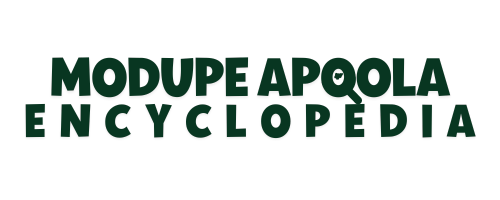
Dadakuada music traditionally from Kwara State, Nigeria, include varieties like Waka, Alagbe, and Pamupamu. Dadakuada music emerged from different groups of minstrels in the early 18th Century who made songs derived from eulolgy, ijala (ballad), incantation, invocation, and folklore. The music is an admixture of all folkloric genres which serve as imperatives on which the formula of dadakuada musical genre is evolved.
Dadakuada is also a typically instrumentally engaged traditional music with highly organised setting. We have the lead singer who sings in higher tonality, the Boto (he adds details to the solo performer song intermittently), the accompanists with modulated pitch, the lead drummer, the drummers, money-keeper. Back in the past when modernity has not shown its face, these musical tools were just engaged like that without electricity. The performance setting of dadakuada is usually in semi-circle. The musical apparatuses range from mother drum to agogo. As said earlier, dadakuada is an orally aesthetically orchestrated music and is contextual relative. The group can perform during wedding ceremony, funeral ceremony, house warming, et.c.
In modern days, Dadakuada has extended beyond Kwara State. Yoruba people outside Kwara State also appreciate this traditional genre of music. The Dadakuada group are locally trained singers. Learners go the way of apprenticeship to master the genre by attaching themselves to a professional singer. In most cases, the group is usually called for performance by Kwaran Diasporas and non-Kwarans who are fascinated through influence. Among notable players of the genre are: Odolaye Aremu, Aremu Ose, Iyabo Balu, among others. Groups are often gender based. Audience participation is not restrained; however, the music is usually appreciated through cash display by the patronage. Dadakuada music have so far declined due to the growing acceptance of hiphop.
Waka

Waka is a variety of traditional music that has an identity with Islamic origin—an emergent of Islamic folksongs. Waka song is a gender restricted sub-genre of Dadakuada because of solely female-dominated performers—the lead singer is usually a female. Aside the female gender stricture, the Waka song group has female accompanists taking the chorus. It can be thusly said that the music is a gender relative genre. The music has no structural or formidable poetical standard but the music is taken up by solo singer who has a wealthy knowledge of her patronage lineage, and he has a literary sharp sense and rhetoric in extolling the patron. The little choir of females usually sing their chorus in concordance, hyperbolically praising the patronage as well. The age of the lead singer or solo performer is not specified, sometimes, it can be an elderly female. A young girl can as well fill in the position of lead singer.
Musical accompaniment is not compulsory. But often than not, musical instruments like sekere, gangan, are musical tools used to satisfy the music with melodious appeal, as most of Yoruba music goes with social relativity, Waka songs can be performed during funeral ceremony, wedding, house warming, naming ceremony, among others. Noteworthy is the basis of formation of Waka group as it is a mobile group which lacks a clear-standing organisational structure. There are more than a hundred of these itinerant singers among them is the Iyaladuke group in Kwara State.
Alagbe
Alagbe is another musical genre that is found as a sub-genre of Dadakuada prolific for the gymnastic and acrobatic displays that accompany the performances along the songs. Alagbe has its appellation because of the musical tool called agbe (a rotund calabash) which is beaten along other musical instruments. The genre could be dated to the earliest period of 20th century. The Alagbe group are composed of older men with younger males who are domestically trained in the arts of acrobatics, and who perform different acrobatic displays to satisfy their audience. The setting of Alagbe performance is often an arena formation. There is always two bamboo sticks planted in the middle of the circle with some meters apart; the performers perform around these two poles or around them while other drummers and singers are positioned adjacent to them. The performers, sometimes, flung at, relaxed and suspended themselves around these two outposts. While this is going, the music will be relaxed to the background. The Alagbe group has a firm organisational structure viz: the solo singer, the accompanists, the performers, and the drummers. The Alagbe do have varieties of music instrument like: talking drum, mother drum, sekere, gong,
Pamupamu
Pamupamu group is another musical variety that can be said to be a Dadakuada derivative. This music can be said to be relatively practised among the males. It is splinter formation emerging out of Dadakuada but fairly practised by the youths. It is a pair counterparts of Waka which is female predominant. It is usually composed of male singer who performers the solo, and the other males taking up the chorus. The Pamupamu are distinctively instrumentally engaged group contrariwise to Waka which is probable in the use of musical tools. Instruments like: ibembe, sakara, sekere, gangan are notable musical tools used in their performance. Thus, as other traditional songs are contextual based, the group is notable for their performance during: wedding, funeral, political rallies, radio adverts, etc. in recent years, Radio Kwara is using the group on health sensitization and environmental awareness entitled ‘e je ka gba’le gba’ta’—let make our home and environment tidy. This group gains political functions from the 2003 till date through the Sarakis’ political sensitization. Among the notable players is the Raimi Jegede’s group.
